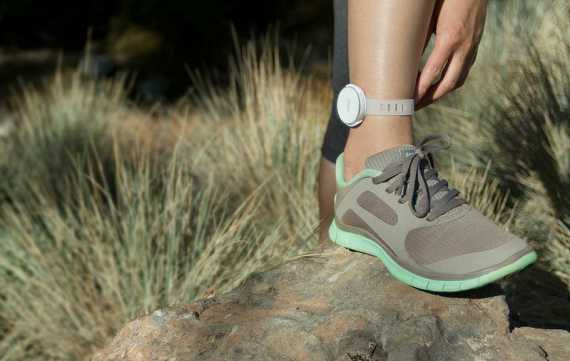
I’ve recently been trying to lose weight, mostly through changing my diet. And it has worked, to some degree; if my scale is right I lost eight pounds in around a month. But I know I have to incorporate some exercise into this as well, and that is an extremely daunting task for me.
I’d love to get a personal trainer who could motivate me, but that’s way too rich for my blood, so my next best option is probably buying Moov, a new kind of wearable, one that uses artificial intelligence to act as a personal exercise coach.
The company announced on Wednesday that it has raised $3 million in Series A financing. The round was led by Banyan Capital.
Launched seven months ago, Moov was the most successful crowdfunded fitness device of all-time raising $1 million in two weeks, despite only setting a goal of $40,000, and selling 20,000 devices. The company has also previously raised $200,000 from a single, unnamed, angel investor.
Moov is a next-generation device, which uses a combination of powerful sensors and A.I. technology in order to track movement as a person exercises, so that it can provide interactive coaching. It can make personalized suggestions about the person can do to do improve their exercise routine in real-time.
“People think they know how to work out, but they don’t know how to run better faster without injury,” Meng Li, CEO of Moov, told me in an interview. “They want to run longer, better and faster but they don’t know how. Moov gives the semi-professional advice they want to have based on rich data and insights on how they are working out.”
Moov also solves some other problems that come with exercise, namely that it can be boring for a lot of people. Even when someone has a personal trainer, that person won’t always do the exercises with them. With Moov, Li explained, the user always has someone with them to give them advice.
But the reason problem it solves is simply being able to give workout tips and updates on the spot, rather than simply giving them afterwards based on data, like many other wearables currently do. Everyone has issues with their workout routines that they could use some help with, she said.
“My problem is that I think of myself as active, and I think I know how to run and swim, but I still need help with biomechanics,” said Li. “There are lot of ways to run, sometimes they better for knee, sometimes not, so I need some help, and more professional coaching.”
So, if the monitor is placed on the ankle, it measure stride rate, how big the user’s stride angle is, it can knows the person’s landing impact and the impact that is having on their ankle, and then, based on that data, talks to the person like a human being would. It can then adjust those movements on the fly, so the person feels the change right away.
The possibilities for Moov are limitless, and that is why Li says that the company will use the new funding to build out its SDK, opening the platform up to third-party developers to design their own apps and uses for the device.
“We feel like we are really close to empowering a lot of people to their develop own app, and to come up with own ideas,” Li said. For example, physical therapists want to build apps that will allow them to help their patients, while researchers want to use Moov in real life situations outside of a lab.
In addition, Moov will use the funding to start developing apps for Android, and to increase its manufacturing to meet demand from consumers.
“The key is the interaction and real time feedback. That itself can open it up for so many activities and sports, everything from martial arts to yoga to golf,” said Li. “Using this one device can really enable a lot of people to build all kinds of apps around motion.”
“There are a lot of things we can see in the future, and we cant wait to show what it can do.”
Right now Moov can be pre-ordered from the company’s website for $79.95. It also sells a pair for $149.95, or sells them in bulk for $74.95 each.















